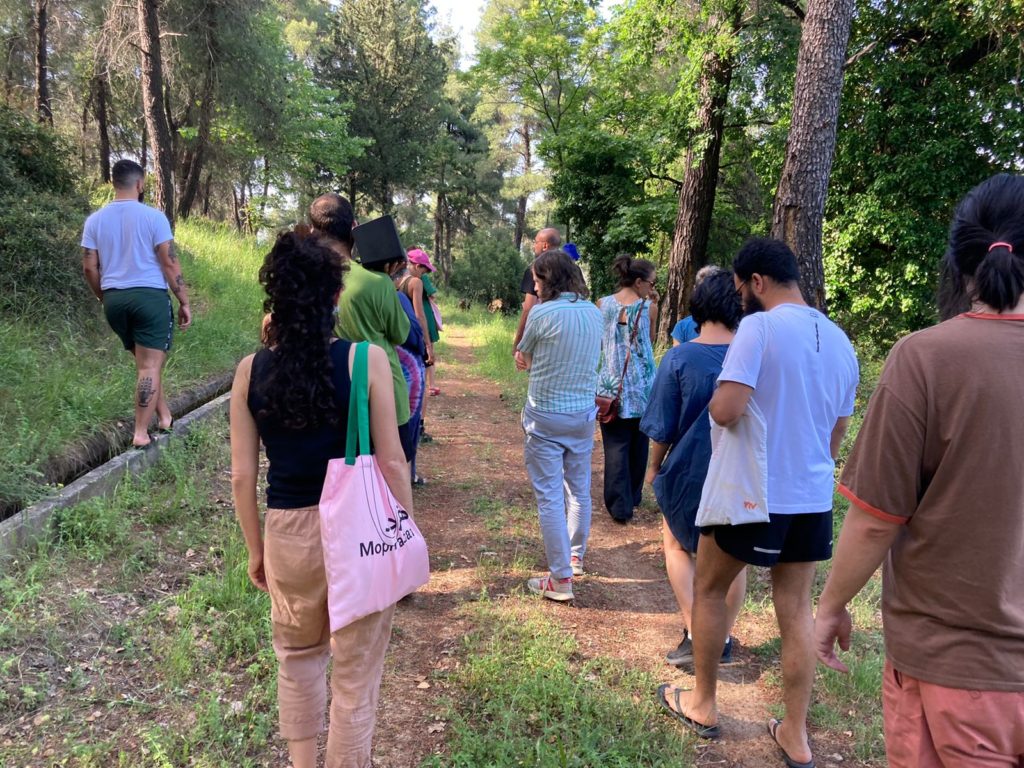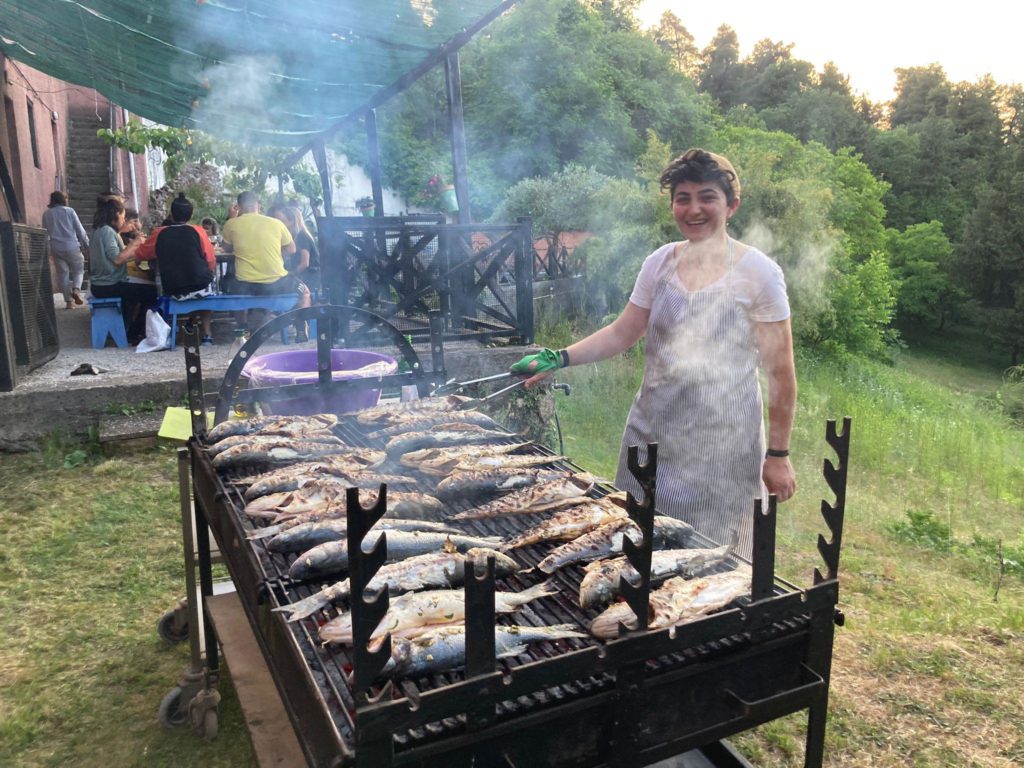Accomplices Evia 2022 took place at a countryside estate on the island of Evia, Greece, from May 24 to 27. The gathering was dedicated to the theme of “+1”, creating an opportunity to think about our dependencies (financial, legal, romantic, substance, political) on/to others, our communities, and the planet. The invited participants were Adam HajYahia (Palestine/USA), Benjamin Seror (France/Greece), Ghiwa Sayegh (Lebanon/France), Habiba Effat (Egypt/USA), Haitham Haddad (Palestine), Islam Shabana (Egypt), Josette Khalil (Lebanon), Karim Kattan (Palestine/Greece), Krystel Khoury (Lebanon/Belgium), Laura Cugusi (Italy/Germany), Mai Abu ElDahab (Egypt/Greece), Maisan Hamdan (Palestine/Germany), Mare Spanoudaki (Greece), Mohamed Abdelkarim (Egypt/Netherlands), Naira Antoun (Egypt/UK), Noor Abuarafeh (Palestine/Netherlands), Rana Issa (Lebanon/Norway), Reem Shadid (Palestine/Lebanon), Sara Médiouni (Morocco), and Suneela Mubayi (India/USA).
Each of the invited participants organized a one-hour workshop for the group in a format of their choosing, with an emphasis on doing and experimenting rather than theorizing. The result was a very concentrated diversity of workshops that looked at the potential implications and considerations of the notion of “+1” – an addition, a subtraction, a weight, or an opportunity, a reliance, or a reciprocity. The two-day gathering centered around urgent conversations, storytelling exercises, play experiments, and more.
Amongst other activities, the group made a mixtape together, during a session where each participant contributed a song which connected them to a significant “+1”; we read together in small circles as a way to explore reading in company or as ritual rather than as a silent or solitary activity; walked through the Evia woodlands while listening to a text by Jumana Emil Abboud inviting listeners to experience the nature around them; collaboratively translated a poem by Iraqi-Assyrian contemporary poet Sargon Boulus to explore the complexity of language, dialect, and translation strategies; and by way of a repurposed version of the exquisite corpse technique, we made short videos that together built a common visual narrative.
Throughout the three days the group was together, an implicit interest in questioning who owns our narratives and holds the reins of their circulation repeatedly surfaced as a common concern.


